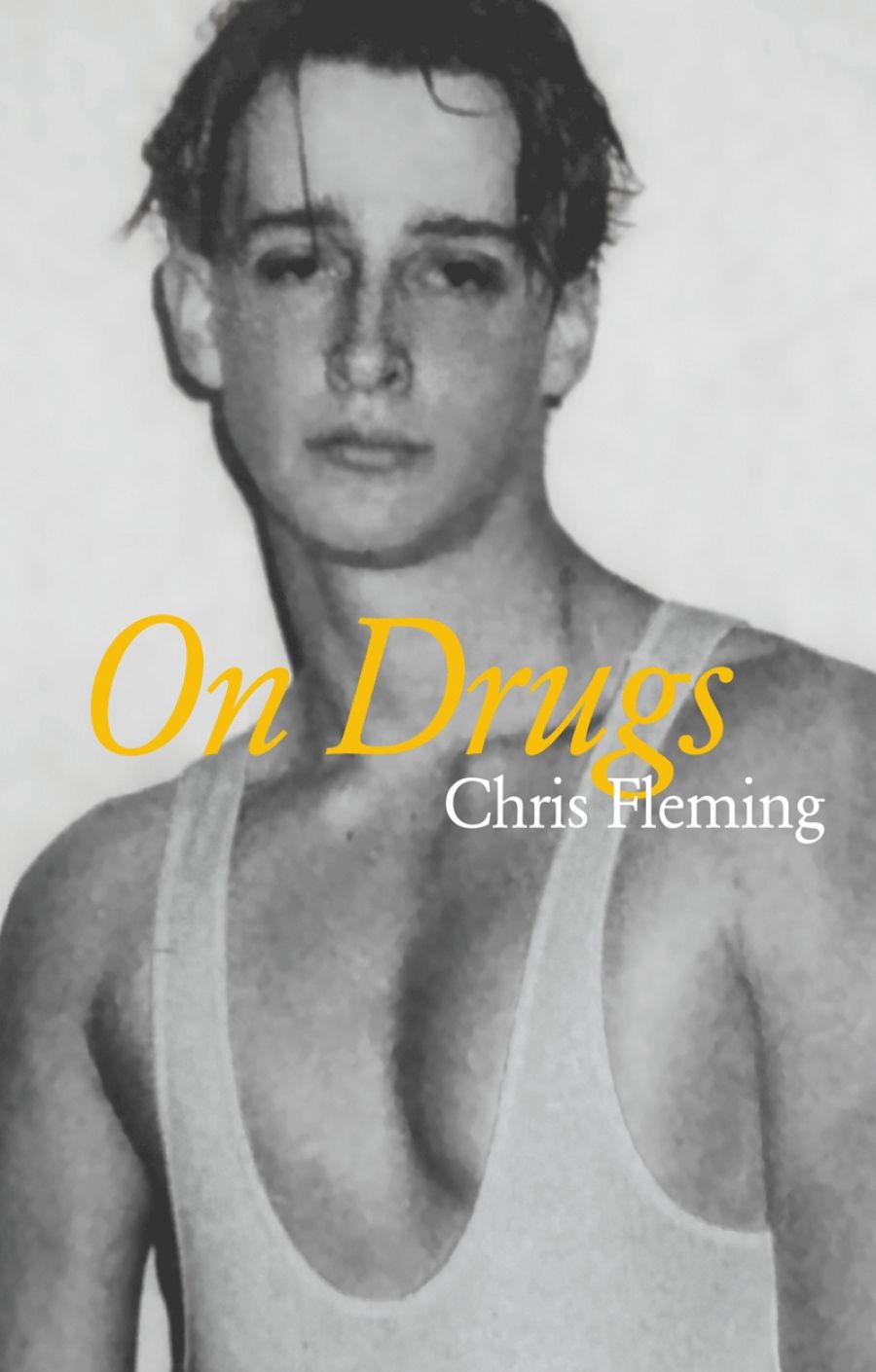
- Free Article: Yes
- Contents Category: Memoir
- Review Article: Yes
- Custom Highlight Text:
Literature inspired by drugs tends to swing between extremes. On the one hand, drugs are the very doors of perception, gateways to Xanadu; on the other they are a source of grim addictions, lotus plants that tempt one into indefinite living sleep. In recent decades there have been the highs of William S. Burroughs, Tom Wolfe, Hunter S. Thompson and Irvine Welsh, but rarer are those memoirists with experiences of addiction and philosophy who can reflect on the subject in the tradition of Thomas De Quincey’s Confessions of an English Opium-Eater (1821). Well, cue Chris Fleming’s On Drugs.
- Grid Image (300px * 250px):

- Book 1 Title: On Drugs
- Book 1 Biblio: Giramondo, $29.95 pb, 222 pp, 9781925818048
His self-examination is cool-eyed, sensitive, and granular. The memoir overall is cerebral, non-linear, and avoids self-dramatisation, but it is enlivened by many vivid anecdotes. At one point, Fleming is chased by a bull while searching for mushrooms; in another passage, the need to cover up an addiction to Nurofen Plus leads him to visit multiple pharmacies a day, part of an intricate routine. He even scores some drugs while his first child is being born, and he often sees ‘the landscape [around him] in terms of deals and dealer-friendly architecture’. These are memorable reminders that the source of an addiction is normally just one thread in a complex web of symbols and narratives binding the addict.
Fleming is an incisive cultural critic as well. He ponders ‘to what extent pharmaceutical companies rely on drug addicts in the same way that poker-machine companies rely on problem gamblers’ – a question that has, controversially, come to the fore recently in the Democratic Party primaries in the United States.
The most powerful parts of the book are the most personal. Early on, he tenderly and humorously describes his childhood in a Catholic family. Unconvinced by ‘hippy Jesus’ he writes that, ‘To me, at least, Catholicism … was mostly about smelling, touching, eating and drinking things’ and that ‘the Eucharist was like some metaphysical endurance biscuit’. Both the Eucharist and the Rolling Stones valorise inhalation and intoxication in his young mind, while his OCD at the time is also evoked in painstaking detail.
Drugs come to symbolise both transmutation and self-apotheosis, and an initial flirtation with alcohol leads him to try pot as if in ‘some grand tradition of rebellion which imposed on [him] no cost whatsoever’. He writes that ‘cannabis produced what modern art tried to do – a defamiliarisation of so-called “consensus reality”, making what was natural appear alien’. Pot then opens the gates to the likes of acid. In a passage that could almost have been lifted from De Quincey, Fleming states that when on acid:
A stray look, cough, laugh, fart or sneeze risks summoning a chaotic and uncontrollable flux of sensations, thoughts and feelings, and with these, the risk that the whole perceptual system, already delicately balanced, will somehow tip over and new, unruly worlds will explode in the mind of the tripper …
For Fleming, the appeal of drugs is mostly intellectual. ‘Drugs weren’t a matter for me … of “dropping out”,’ he writes, ‘I wasn’t trying to get out of it, but into it.’ As a student, he is captivated by the ‘Sapir–Whorf hypothesis’ – that language is constitutive rather than descriptive of thought – and says that ‘drugs … animated the intellectual possibilities’ of that hypothesis. But he is also candid about his own struggle to coordinate his feelings and his intellect, avoiding what David Foster Wallace calls ‘a compulsive and unhealthy relationship to [his] own thinking’.
He writes sensitively about other people, too, which bodes well for any future books he may write. In one chapter, he describes an old friend known as ‘C’, who has been hospitalised after a suicide attempt; their final encounter is especially fraught and affecting.
Narrative sometimes gives way to extended meditations, not all of which are as readable as the stories he tells. But the conclusions are satisfying and hard-won, and should be valuable to many people who suffer from addiction. He says that: ‘Addictions, at the base, are mostly just maladaptive, compulsive attempts to block desperate feelings, which end up casting bigger and nastier shadows than any of those feelings might have done by themselves.’ These insights are justified by the absence of sentiment or self-pity, in prose that can be aphoristic and even veer towards insouciance but never loses rigour or focus.
On Drugs is anything but a comfortable read, but it is vital and, for those who brave it, a rewarding experience. While the depths of addiction are conveyed precisely and unsparingly, the voice is so sober and awake that it really does offer hope that addiction – of any kind – can be overcome, and something made of it


Comments powered by CComment